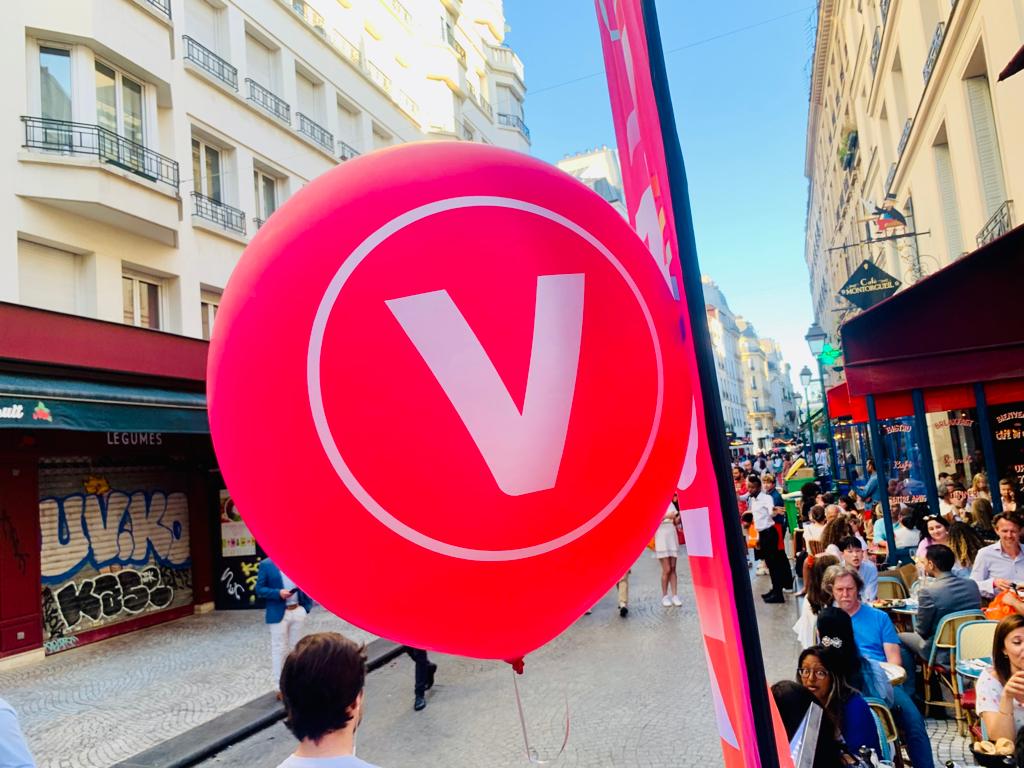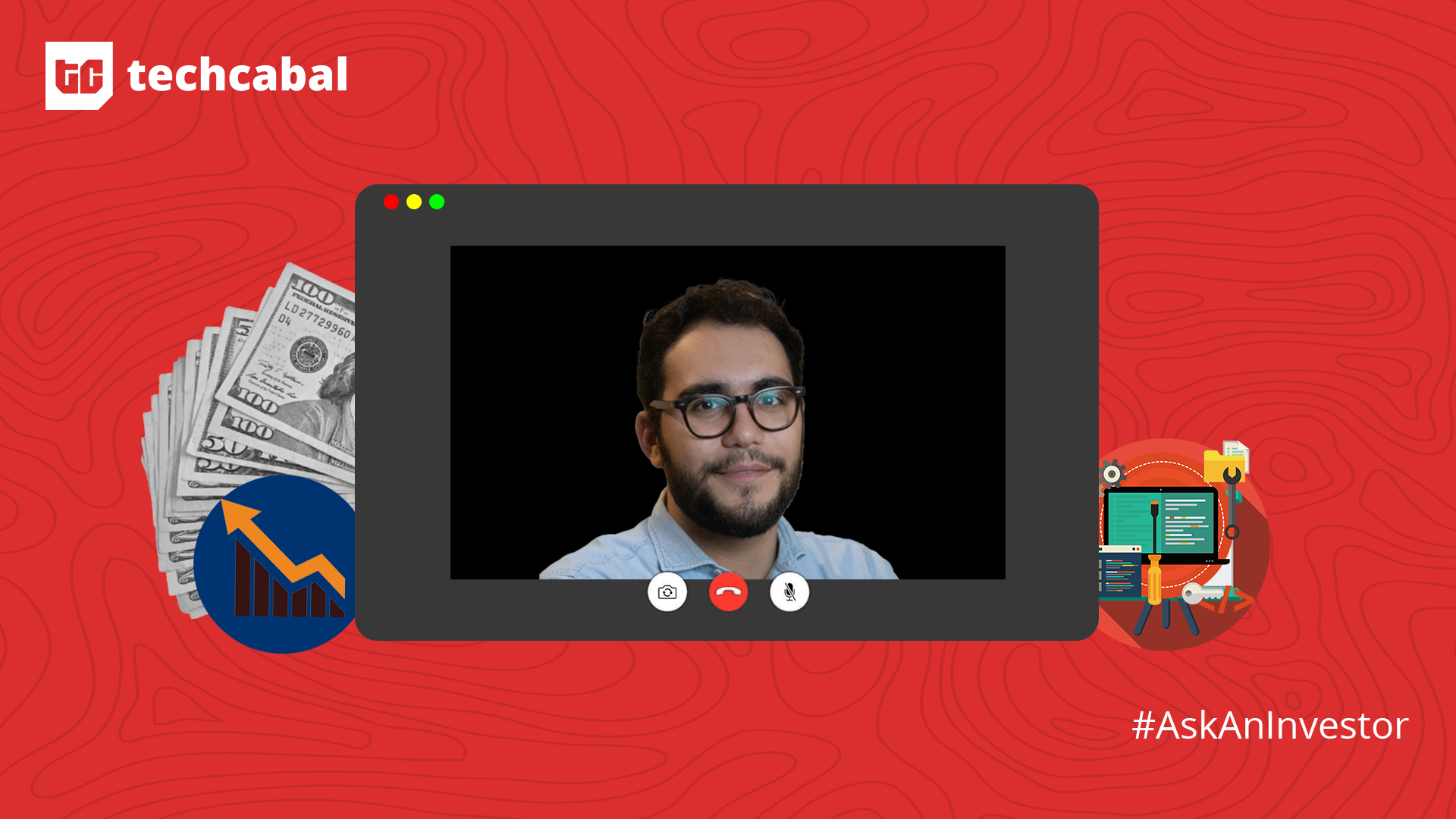May 14
At about 5:45 PM CET on May 14, I arrived at the Gare du Nord station in Paris, France. It was rowdy, with a mix of different people who had just arrived in the city or were about to leave. A typical sight at one of the city’s 6 large mainline railway station terminals.
I had travelled to Paris for VivaTech, one of Europe’s largest tech conferences. Founded in 2016, VivaTech has hosted 36,000 startups, 3,300 investors, and numerous business leaders and innovators such as Mark Zuckerberg, Jack Ma and Tim Cook.
I planned to arrive a few hours earlier for the Viva AfricArena event at Station F, but a 90-minute train delay made it impossible.
My first stop was Rue Montorgueil, a street lined with restaurants, cafés, bakeries, fish stores, cheese shops, and wine shops. About 100 VivaTech attendees filled the street chatting and drinking at Viva Night, a networking event.
To satisfy my hunger, I bought shawarma—starting with familiar food—and a drink, before going on to chat with a few startup founders from Africa and Europe.
Exhausted from a long day of dragging my suitcases around, I decided to book an Uber to my Airbnb, so I wouldn’t have to keep asking people for directions.
Over the course of the 45-minute ride, I had a light-hearted conversation with the driver who lives in Paris but is from Algeria. His English wasn’t perfect, but it was good enough for him to dish out some words of advice on why I should get married soon.
“Je parle Anglais,” was a standard disclaimer I gave to almost everyone who started speaking to me in French, telling them that I only speak English. Growing up, I had learnt French at every level of my education but was never in the right environment long enough to practise speaking it.
Later, as I settled into my Airbnb room, I made an attempt to watch TV but embarrassingly caught myself scrolling through the stations, looking for an English-speaking channel. So much for using not being in the right environment as an excuse for my incapacity with French. I didn’t bother turning on the TV after that day.
May 15
At 9:59 AM, I arrived at the Paris Expo Porte de Versailles. There was a large crowd outside the venue waiting to enter. I was about an hour late because I had to get a SIM card to wean myself off my dependence on public WiFi.
The conference started on a high note with a teeming crowd and positive energy. After a bit of queuing, I got inside and was fascinated to see more than 100 African startups present—most of them serving francophone African countries.
It felt odd that there was no Nigerian booth at the conference, considering that countries like Egypt and South Africa had booths. I later learned from someone involved in trying to organise a Nigerian delegation that the current focus on the 2023 election cycle was a major reason why the government didn’t sponsor a delegation.
Over the next few days at the conference, talking to many of these startups made me more aware of the francophone African tech ecosystem and the different people and organisations working to make it thrive.
Conversations and sessions
With startups stationed in shared 3-by-3-metre booths all over the conference venue, I walked to different booths seeking to learn more about what they did.
I spoke to Julien Herbin of Kayfo Games, a startup based in Senegal, who explained that making games from Dakar had a few limitations as he couldn’t monetise the business through in-app purchases because Senegal didn’t have an agreement with Google and Apple on taxation and revenue share, thereby limiting his revenue streams to only advertising.
Finding a place to park in African cities can often be a hassle. Senegalese Lamine Ba of Parcsmart, explained to me that solving the problem of parking in Senegal and other African cities could lead to more efficient use of land and how parking can be a significant revenue stream for businesses.
Yanick Kemayou of Kabakoo Academies (Mali), whose edtech solution is helping youths acquire critical competencies such as programming and design, for success in a fast-moving world, was generous in explaining his business model and later helping me get a city transport card to aid my movement around the city.
I also chatted with Singaporean-French serial entrepreneur and now investor, Lin Dejean Yun of Transcendence VC, who explained why she’s bullish on francophone Africa: it’s an untapped market.
On different occasions, I listened to a pitch by Lew Kam of Easy Matatu (Uganda)—one of the 3 finalists in the Climate Tech Awards—on how they are reducing carbon emissions by streamlining mobility.
Dr Rasha Rady of Chefaa (Egypt) spoke about learning to pitch to investors as a female founder on a panel session about women in tech.
Cameroonian tech founder and investor, Rebecca Enonchong, gave a passionate talk on her struggles as an entrepreneur and why African entrepreneurs are better adapted to surmount new challenges.
“Startups in Africa, in my opinion, are less risky than startups in other parts of the world because of our resilience as entrepreneurs,” she said. “We [African entrepreneurs] are very adapted for challenges, and we’re able to surmount challenges unlike any other ecosystem entrepreneurs that I’ve ever met,” Here’s a 2-minute clip of her speech.
I also listened to a panel on the future of work. Gregoire Schwebig, CEO AfricaWorks, suggested that maybe Africa doesn’t need to rely on Western ideas of going fully remote due to its current infrastructural problems. The future he suggested is in distributed offices: rather than having one office, companies could have offices all-around cities, closer to employees. The idea rings nice to me, but I wonder how affordable it is.
Since it was launched in 2018, the Délégation Générale à l’Entreprenariat Rapide des Femmes et des Jeunes (DER) has granted 60 billion FCFA (~$96,424,000) out to startups and helped transform the Senegalese tech ecosystem. Mame Aby Seye, General Delegate for Youth and Women Entrepreneurship, spoke about the achievements of the Senegalese tech ecosystem and the support given by the DER to make this possible.
Food
After eating shawarma on my first day in Paris, I had more sandwiches, croissants, and pizza over the next 2 days, and then I started craving Nigerian food—I was tired of meals with flour. Fortunately, I ate sea bass, Turkish food, which made my taste buds come alive.
On Friday evening, I got to eat some Nigerian fried rice cooked by a Nigerian friend who was also at the conference.
Outside African tech
India was recognised as Country of the Year at VivaTech, a special recognition given due to the contribution of Indian startups to the world. India has 100 unicorns—one out of every 10 unicorns comes from India.
French President Emmanuel Macron, Binance CEO Changpeng Zhao, Pfizer CEO Albert Bourla, and other notable innovators and leaders were also present at the conference.
Four years ago, Huawei launched its app gallery to the rest of the world, making a concerted effort to move beyond Google and build its own ecosystem of products that tie together. During a session by Huawei, the company shared that it has over 432 billion downloads and over 580 million monthly average users (MAU), as of 2021—and that less than 10% of those came from Europe. The number of users from Africa wasn’t shared, most likely because the session was more relevant to a European audience. The Huawei operating system has 5.4 million registered developers and over 187,000 apps are already integrated into it.
That’s a small figure compared to Google, which had 3.48 million apps on Playstore as of Q1 2021, and 111.3 billion apps downloaded as of 2022. But still, it is a sign that Huawei has made progress over the years. The company also displayed some of its machine learning capabilities. Here’s a video of a demonstration of that.
Fashion and tech
Amid the 2,000 exhibitors at the conference, I learned that fashion and beauty brands like Fendi, Bulgari, and Dior were doing more than just creating outfits in the metaverse. Bulgari had an interactive display that enabled clients to create a 3D image of a piece of jewellery in the metaverse, which can then be minted into an NFT. Christian Dior partnered with Lucibel, a French company that designs and manufactures new-generation lighting products and solutions based on LED technology, to create this mask that uses cold red light to stimulate and regenerate skin cells within 12 minutes, without the risk of burning. I didn’t get to try it, but someone who did mentioned that it’s like a substitute for Botox, given that it tightens the skin and straightens out wrinkles.
Fendi teamed up with a startup to create an interactive game that gave users the ability to recreate a limited edition bag in order to experience how it was created by craftsmen in Italy. It took 900 hours to create one bag.
Some of these demonstrations were a strategy to get the attention of passers-by, and others were meant to build affinity with the brand by asking users to create fashion items virtually.
La fin
Saturday, May 18 was the hottest day of the year so far in France, and I felt every degree of it. Many people stayed indoors, and those who went outside were dressed lightly. At its peak, temperatures rose to about 32°C—Lagos was 26°C. I couldn’t help but wonder how the heat from Lagos followed me to Paris.
Saturday was mostly dedicated to conference sessions held in French—most sessions without translators, presenting me with the perfect opportunity to visit more booths and meet more people.
Later in the evening, after 4 days of learning about tech and showcasing tech products and services, VivaTech 2022 came to an end with music from French DJ Hadrien Federiconi, better known by his stage name Feder. The Africa Tech section hosted ace Congolese guitarist Olivier Tshimanga, who dished out some melodic tunes. The Congolese delegates sure do know how to end a conference in style.
VivaTech 2022 recorded about 91,000 in-person visitors and 300,000 online visits from 146 countries. There were 1,800 startups and 700 investment funds.
After an exhilarating week, the next day, I made sure to visit the Eiffel Tower before leaving Paris.
As I got closer, I didn’t find the Eiffel Tower impressive, seeing that it was one tall structure made up of connected metals. But as soon as I made it to the top, my opinion changed; the experience was beautiful.
Au revoir, mes amis!





















